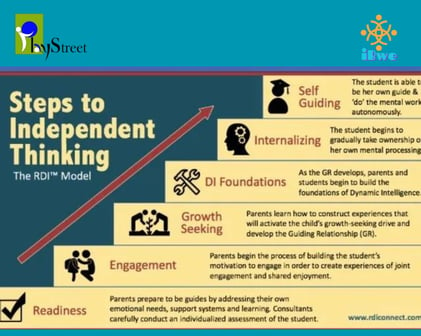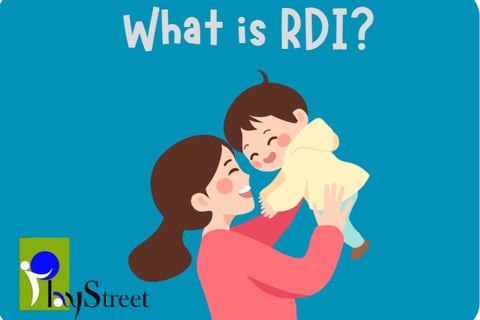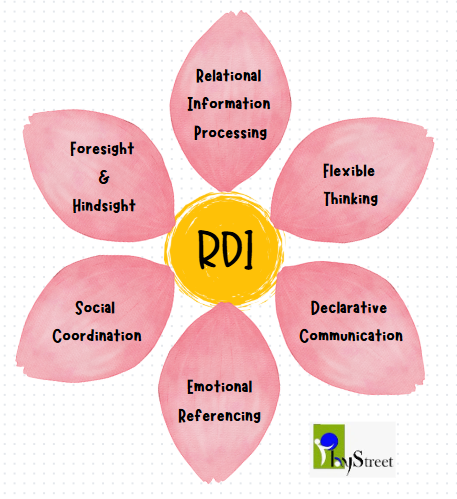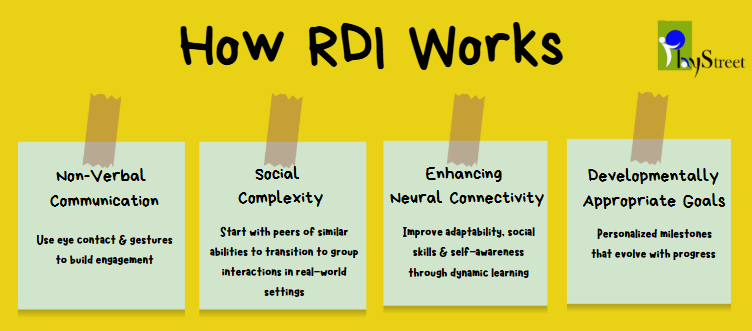Relationship Development Intervention (RDI)


What is it?
Relationship Development Intervention (RDI) is a family-centred, behavioural approach that addresses the core challenges of Autism by focusing on building social and emotional skills. Unlike traditional therapies, RDI places parents at the centre of their child’s development, training them to be the primary guide in their child’s learning journey.
Key Objectives of RDI
RDI is built on the concept of Dynamic Intelligence—the ability to think flexibly, adapt to change, and understand multiple perspectives. The program focuses on six essential goals to strengthen social connections:
Emotional Referencing: Learning from the emotional experiences of others.
Social Coordination: Observing and controlling behavior for successful social interactions.
Declarative Communication: Using language and non-verbal cues to express curiosity, share feelings, and coordinate actions.
Flexible Thinking: Adapting and altering plans as situations change.
Relational Information Processing: Solving complex problems and understanding context.
Foresight and Hindsight: Using past experiences to anticipate and plan for future possibilities.
How RDI Works
RDI follows a step-by-step, personalized approach based on the child’s age and developmental level. The process begins with building a “guided participation” relationship between parents and their child, where the child is viewed as a “cognitive apprentice.”
Key components of RDI include:
Encouraging non-verbal communication through eye contact and gestures.
Introducing developmentally appropriate goals that evolve with the child’s progress.
Gradually increasing social complexity by pairing the child with peers who share similar abilities, and expanding to group interactions in real-world settings.
Strengthening neural connectivity to improve adaptability, social skills, and self-awareness.
Parents, teachers, and caregivers incorporate RDI principles into daily life, using positive reinforcement to promote growth.
Why RDI is Different
RDI targets the root challenges of Autism—poor observation, difficulty with flexible thinking, and limited social connection—by fostering natural learning and adaptability. The program empowers families to create environments where children can thrive emotionally, socially, and cognitively.






Intensity of RDI Programs
Families typically integrate RDI strategies into everyday life, spending a few hours per week practicing these techniques. The frequency and intensity are flexible, tailored to each family’s needs. The contract with consultant is for 1 year with meetings happening once week.
Learn More About RDI (https://www.rdiconnect.com/)
RDIConnect provides resources, certified consultants, and community support for families implementing RDI. Explore Dr. Gutstein’s books, including Autism Aspergers: Solving the Relationship Puzzle and The RDI Book, to dive deeper into the program.